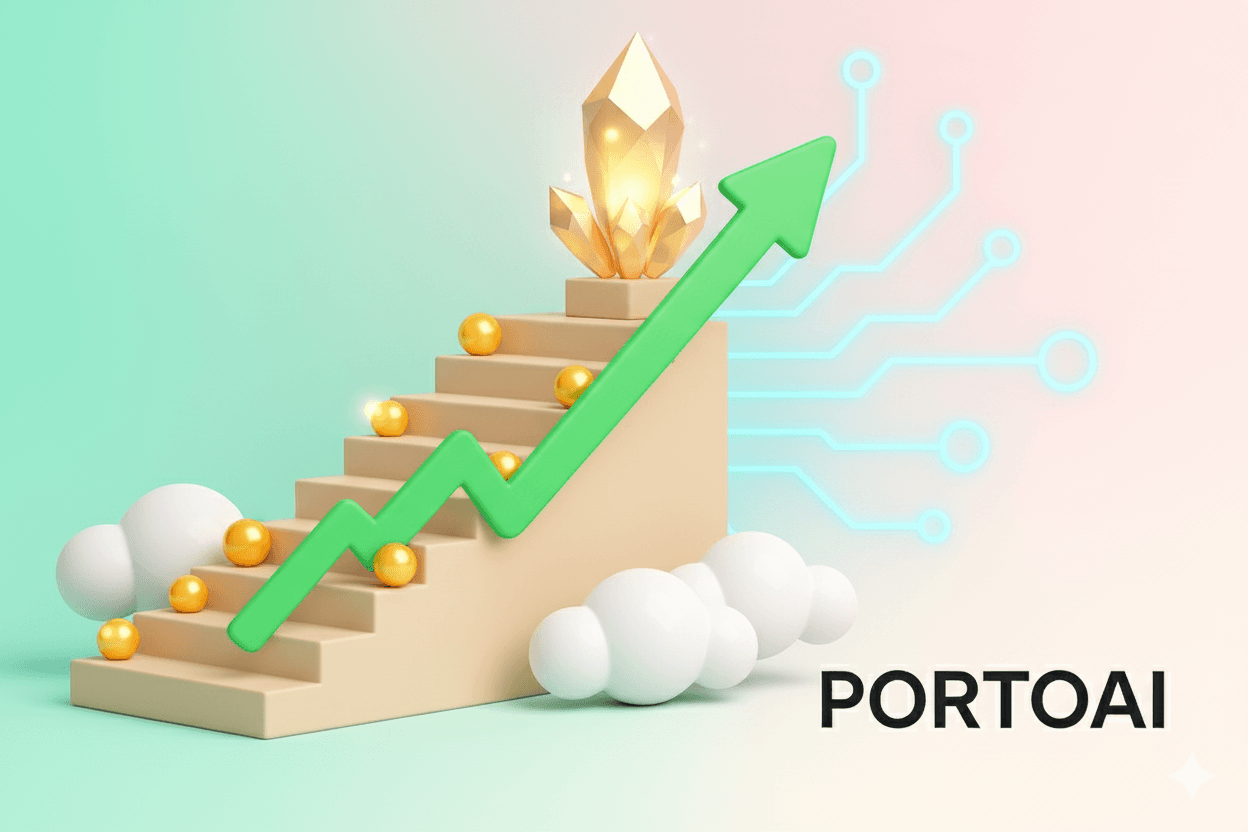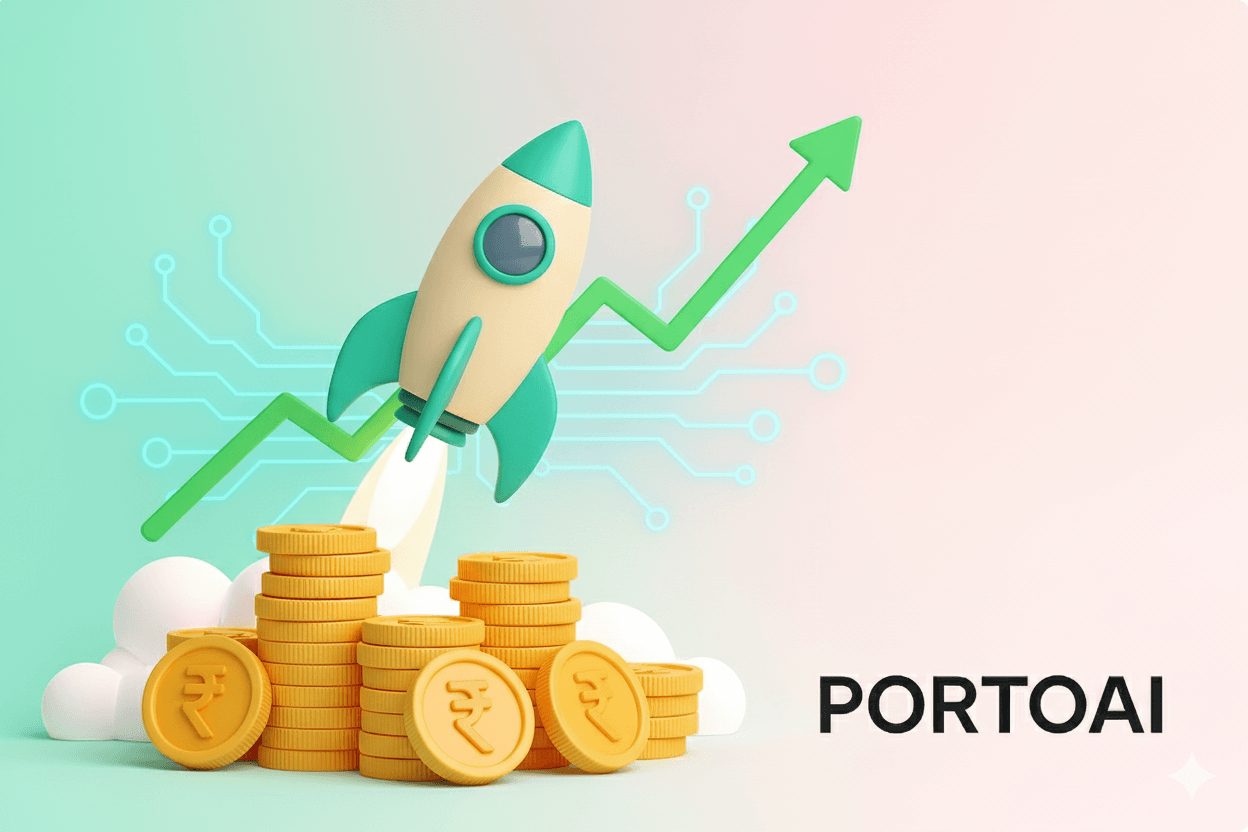Master LTCG Tax: Strategies for Investors in 2024

Venkateshwar Jambula
Lead Market Researcher
4 min read
•Published on September 19, 2024
•Navigating Long-Term Capital Gains (LTCG) Tax: Strategies for the Discerning Investor
The introduction of Long-Term Capital Gains (LTCG) tax on equity investments, particularly following the Union Budget 2018, marked a significant shift for many investors. While the intent is to encourage long-term investment horizons, understanding and strategically managing this tax is crucial for preserving capital and maximizing returns. At PortoAI, we believe in empowering investors with data-driven insights to make confident, disciplined decisions. This guide explores how sophisticated investors can navigate the complexities of LTCG tax.
Understanding the LTCG Tax Framework
Introduced in the Union Budget 2018, the LTCG tax on equity investments typically applies at a rate of 10% for gains exceeding ₹1 lakh in a financial year, without the benefit of indexation. Gains accrued up to January 31, 2018, were grandfathered, meaning their cost of acquisition was adjusted to reflect the Fair Market Value on that date, providing a cushion against retrospective taxation.
This policy adjustment underscored a broader market sentiment shift, highlighting the importance of strategic planning in investment management. The goal is not to evade taxes, but to optimize investment outcomes within the regulatory framework.
Strategic Approaches to Managing LTCG Tax
While the most straightforward approach to LTCG tax is often to accept and pay it, especially when overall portfolio growth is robust, several strategies can help manage its impact. The key lies in disciplined portfolio monitoring and strategic execution.
1. Systematic Withdrawal Plans (SWP)
For investors drawing regular income from their portfolios, a Systematic Withdrawal Plan (SWP) can be a valuable tool. By systematically redeeming units from a mutual fund scheme and transferring the proceeds to a bank account, investors can structure their withdrawals.
- Benefit: By carefully timing SWP redemptions, investors can aim to keep their total annual gains below the ₹1 lakh threshold, thereby potentially avoiding the LTCG tax liability. This requires diligent tracking of unrealized gains across all holdings.
2. Strategic Timing of Exits
Deciding when to sell is as critical as deciding what to sell. This applies to both profitable and loss-making positions.
- For Gains: If you anticipate exceeding the ₹1 lakh LTCG threshold, consider realizing gains incrementally. Selling portions of your holdings strategically throughout the year can help keep individual year-end gains within the tax-exempt limit. This necessitates continuous portfolio analysis and market assessment.
- For Losses: If you have long-term capital losses, it may be prudent to realize these losses before March 31st. These losses can then be set off against any future long-term capital gains, effectively reducing your taxable income in subsequent years. The PortoAI platform's risk console can help identify and track such opportunities.
3. The Case for Long-Term Holding
Despite tax considerations, the most effective strategy for wealth creation often involves a long-term perspective. Frequent trading, or 'churning,' incurs transaction costs and can trigger short-term capital gains (STCG) tax at a higher rate (typically 15%).
- Focus on Quality: Investing in consistently performing assets and high-quality companies, rather than chasing short-term market movements, is paramount. This approach aligns with the principle of compounding and minimizes the need for frequent portfolio adjustments.
- Diligence in Selection: The PortoAI platform's Market Lens provides sophisticated analytical tools to identify robust, long-term investment opportunities across market caps and sectors. By selecting fundamentally strong assets, investors can confidently hold through market cycles, allowing capital gains to accrue over extended periods.
Choosing the Right Investment Vehicles
While the LTCG tax applies broadly, the underlying investment choices significantly influence potential returns and volatility. Understanding different fund categories can inform your long-term strategy:
- Large-Cap Funds: Invest in established, top-tier companies, offering relative stability and consistent return potential. Ideal for investors prioritizing capital preservation alongside growth.
- Mid-Cap Funds: These funds invest in companies with market capitalizations between large and small caps, offering a balance between higher growth potential and moderate volatility.
- Multi-Cap Funds: With the flexibility to invest across market capitalizations, multi-cap funds allow fund managers to dynamically allocate capital, potentially optimizing risk-adjusted returns.
- Sector Funds: For investors with deep conviction in specific industries, sector funds offer concentrated exposure. However, they also carry higher sector-specific risks.
Conclusion: A Disciplined Approach to Wealth
Long-Term Capital Gains tax is an integral part of the investment landscape. While strategies exist to manage its impact, the core principle for sustainable wealth creation remains consistent: disciplined, data-driven investment in high-quality assets with a long-term perspective. By leveraging advanced analytics and maintaining a strategic outlook, investors can navigate tax complexities and focus on achieving their financial objectives.
PortoAI is designed to provide the analytical edge necessary for such informed decision-making. Our platform empowers you to synthesize market data, identify robust opportunities, and manage your portfolio with confidence, ensuring your investment strategy is both effective and tax-efficient.
Disclaimer: This blog post is for educational purposes only and does not constitute financial advice. Investment decisions should be based on individual financial goals, risk tolerance, and consultation with a qualified financial advisor.
Blog
Investment Insights and Tips
Explore our latest investment strategies and insights.

Stocks
Master Investment Psychology: Control Emotions for Smarter Stock Decisions
The Psychology of Stock Investment: Understanding Emotions That Affect Investment Decisions A stock market is a funny place – both the seller and buye...
Venkateshwar Jambula
November 7, 2024
•4 min read

Stocks
Power Grid India Stock: Analyzing PGCIL's Price Movements & Future
The Rise and Fall: Unraveling the Power Grid Corporation of India Stock Price The Power Grid Corporation of India Stock Price (PGCIL) has experienced ...
Venkateshwar Jambula
November 6, 2024
•10 min read

Stocks
Are Multibagger Stocks Still Possible in 2025? Your AI Guide
These 6 Multibagger Stocks Exploded in 2025 — Is Your Portfolio Still in 2022? Till June 2025, the benchmark Sensex has risen by around 4%, reflecting...
Venkateshwar Jambula
November 5, 2024
•11 min read

Stocks
Top 5 Indian Growth Stocks & Sectors for 2025: AI-Driven Insights
Top 5 Best Growth Stocks in India & Sectors to Watch in 2025 You see the market correction in late 2024 and early 2025 was driven by weak economic...
Venkateshwar Jambula
November 4, 2024
•9 min read